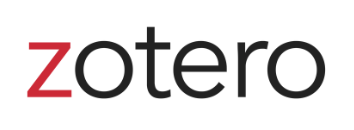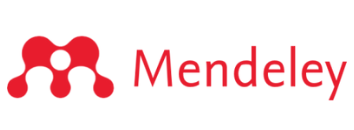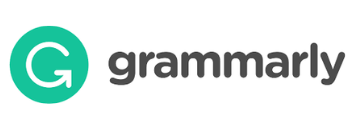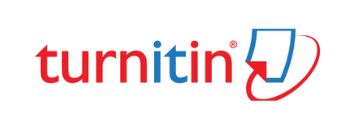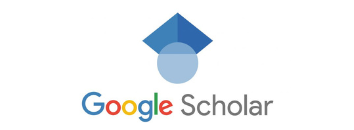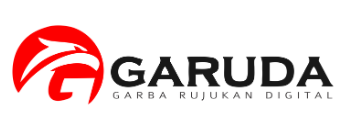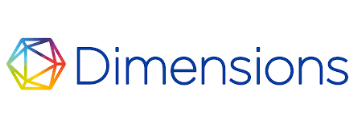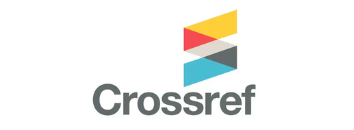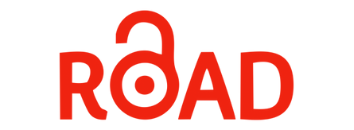HALAL MARKETING AND FINANCIAL PERFORMANCE: STUDY IN COSMETIC COMPANIES IN INDONESIA
DOI:
https://doi.org/10.24002/kinerja.v23i1.2123Abstract
This study aims to prove the empirically relationship between halal marketing (halal labelling and hijabista celebrity endorsement) with financial performance. The independent variable is halal labeling and hijabista celebrity endorse, while the dependent variable is financial performance. This research was conducted in Indonesia, spread across five cities such as: Jakarta, Lampung, Bali, West Sulawesi, and Aceh with samples of PT. Paragon Technology and Innovation and PT. Sari Ayu., Tbk. Survey methods and 51 questionnaires used in this research. The result shows that halal labelling has no effect on financial performance, while hijabista celebrity endorse has an effect on financial performance.
Keywords: halal labeling, hijabista celebrity endorse, and financial performance
References
Abdullah. J, Hamali, Abdullah. 2015. Success Strategies in Islamic Marketing Mix. International Journal of Business and Society, 16(3), pp. 480-499.
Abdurrahaman, et.,al. 2018. Celebrity-Brand Endorsement: A Study on its Impacts on Generation Y-ers in Nigeria. Asian Journal Of Scientific Research, 11(3), pp. 415-427.
Ajzen, I. 2011. The Theory of Planned Behaviour: Reactions and Reflections. Psychology & Health, 26, pp.1113-1127.
Ali, J.A, A. Al-Aali. 2015. Marketing and Ethics: What Islamic Ethics Have Contributed and The Challenges Ahead. Journal Business Ethics, 129, pp. 833-845.
Ambali, R. A., Bakar. A. 2014. People’s Awareness on Halal Food: Potential Issues For Policy-Maker. Procedia Sosial and Behavioral Sciences, 121, pp. 3-25.
Ashmawy, D. 2015. Toward a Comprehensive Understanding of Islamic Marketing: Concept, Evolution, and Implications. European Journal of Business and Management. 7(10).
Brigham, E.F., J.F. Houston. 2014. Fundamentals of Management. Jakarta: Salemba Empat.
Burhanuddin. 2011. Legal Thoughts on Consumer Protection and Halal Certification. Malang: UIN Malang Press.
Carvalho. 2012. The Effects of Celebrity Endorsement on Costumers Purchasing Intetions. Dissertation: ISCTE Bussines School Instituto Universitario de Lisboa.
Chintagunta, P., J. Lee. 2012. A Pre-Diffusion Growth Model of Intentions and Purchase. Journal of Academics and Marketing Sciences, 20, pp. 137-154.
Cooper, D.R., P.S. Schindler. 2011. Business Research Methods 11th Edition. New York: McGraw-Hill/Irwin.
Endah, H.N. 2014. Purchasing Behavior of Halal Labeled Cosmetics by Indonesian Consumers. Journal of Economic and Development, pp. 22 (1).
Euromonitor International in Cosmetics Paris 2016.
Ghozali, I. 2006. Multivariate Analysis of IBM SPSS 19 Programs. Semarang: Universitas Diponegoro.
Goentoro, E. 2016. Strategy Implementation as Intervening for Company’s Resources and Regulations in order to Form Business Performance. International Journal of Research in Commerce and Management, 7, pp. 93-96.
Government Regulation no. 69 of 1999 concerning Labels and Food Ads.
Gudono. 2014. Multivariate Data Analysis Second Edition. Yogyakarta: BPFE.
Ikatan Akuntan Indonesia (IAI). 2007. Financial Accounting Standard (SAK), PSAK No. 18. Jakarta, Salemba Empat.
Hair, J.F., et al. 2010. Multivariate Data Analysis 6th Edition. New Jersey: Prentice Hall.
Jan, M.T., Kathom, A. 2015. Fashion: Malaysian Moslem Women Perspective. European Scientific Journal, 11, pp. 438-454.
Janmohammed, S. 2017. Young Muslim Generation and the Way They Form the World. Yogyakarta: Bentang Pustaka.
Jonathan A.J.W., J. Liu. 2011. The Challenge of Islamic Branding: Navigating Emotions and Halal. Journal of Islamic Marketing, 2, pp. 28-42.
Kassim, A., Khairil, A., Arokiasamy, Lawrence, Isa, M., Mohd, H., Ping, Chieng, H. 2017. Intention to Purchase Safer Car: An Application of Theory of Planned Behavior. Global Business and Management Research, 9(1), pp.188-197.
Kettani, H. 2010. World Muslim Population Proceding of The Hawaii. International Conference on Art and Humanities, Hawai: Honolulu.
Khan, A.,M. K. Azam. 2016. Factors Influencing Halal Products Purchase Intention in India: Preliminary Investigation. The IUP Journal of Marketing Management, 14(1).
Kotler, P., K.L. Keller. 2012. Marketing Management 14th Edition. England: Pearson Education Limited.
Lapera, E. 2013. Influence of Product Advertising, Lifestyle, Endorsement Celebrity, and Advertising Messages on Consumer Buying Interest. Thesis. Faculty of Economics And Business, Satya Wacana Christian University: Salatiga.
Malik, K., M. Khan. 2016. Islamic Branding and Marketing: An Insight of Consumer Perception in Pakistan. The Journal of Developing Areas, 50(5).
Mathew, R.,N., Raudah, Nurazizah. 2014. Acceptance on Halal Food Among Non-Moslem Consumer. Procedia Social and Behavioral Sciences, 121, pp. 162- 271.
Mohezar, Z,Z., Zainuddin. 2016. Halal Cosmetics Adoption among Young Muslim Consumers In Malaysia: Religiosity Concern. GJAT, 6(1), pp. 47-59.
Morgan, N.A., Anna, K., Constantine, S. K. 2004. Antecedents of Export Venture Performance: A Theoretical Model and Empirical Assessment. Journal of Marketing, 68, pp. 90-108.
Muslimpopulation. 2017. World Muslim Population. [online] Available at: http://www.muslimpopulation.com/World/ [Accessed on June 7, 2017].
Nourl, et al. 2015. The Effect of Marketing Tactical Capabilities on The Financial Performance of The Firms: Meta-Analysis Approach. Iranian Journal of Management Studies 8 (1):73-96.
Pewforum. 2015. 10 Countries with The Largest Muslim Populations, 2010 and 2050. [online] Available at: http://www.pewforum.org/2015/04/02/muslims/pf_15-04-0_projectionstables74/ [Accessed on June 7, 2017].
Purwanto, R.J. 2017. Comparative of Analysis Financial Performance: Between Islamic and Conventional Bank in Indonesia. International Journal of Management, Accounting and Economics, 4(4), pp. 401-430.
Qur'an Surat Al-baqoroh (2) verse 168. Al-Burhan Manuscript Edition for Women. Bandung: CV. Media Fitrah Rabbani.
Qur'an Surat Al-Maidah (5) verse 3. Al-Burhan Manuscript Edition for Women. Bandung: CV. Media Fitrah Rabbani.
Royan, F.M. 2004. Celebrities in Celebrity Ads and Strategies Market Yourself. Jakarta: Elex Media komputindo. Gramedia Group.
Salehudin, I., B.A., Luthfi. 2012. Marketing Impact of Halal Labeling toward Indonesian Muslim Consumer’s Behavioral Intention. ASEAN Marketing Journal, 3(1), presented partially in the 5th International Conference on Business and Management Research, 4th August 2010, Depok-Indonesia.
Salehudin, I., B.M. Mukhlish. 2012. Halal Marketing: Concepts, Implications and Findings in the Field, in the FEUI Alumni Association (Ed), Used to hear now talk: a collection of FE-UI young economist writings (pp. 293-305). Jakarta: Institute of Publishers of the Faculty of Economics Universitas Indonesia.
Salindal, N. 2015. Halal Certification and Business Performance of Halal Certified Food Companies in The Philippines. Thesis. International Islamic University Malaysia (unpublished).
Salleh, M. 2016, The Significant Contribution of Islamic Relationship Marketing Practicein Malaysian Takaful Industry Towards Determining Costumer Gratitude, Trust, and Commitment. Asian Academy and Management Journal, 21(1), pp. 171-207.
Salyova.,et al. 2015. Effect of Marketing Orientation on Business Performance: A Study from Slovak Foodstuff Industry. Procedia Academics and Finance, (34), pp. 622-629.
Sandikci, O., G. Ger. 2011. Islam, Consumption and Marketing: Going Beyond the Essentialist Approaches. Hand book of Islamic Marketing. Edward Elgar, Fall.
Shaari, J.A.N., N.S.M., Arifin. 2010. Dimension of Halal Purchase Intention: A Preliminary Study. Sarawak: Faculty of Economics and Business, Universiti Malaysia Sarawak.
Setiawati, Melisa. 2015. Use of Maudy Koesnaedi as Celebrity Endorser in Loreore Fall Repair 3x Television Advertising on L’oreal Image Brands in Surabaya. Jurnal E-Komunikasi, 3(1), pp. 2-12.
Shimp, T. A. 2003. Promotional Advertising Additional Aspects of Translation Marketing Communication by Revyani Sjahrial and Dyah Anikasari Fifth Edition Volume 1. Jakarta: Erlangga.
Spillan J, J. Parnell, N. Virzi. 2011. Business Strategy and Performance: An Assesment of Retailers in Guatemala. Latin American Business Review, 12, pp. 39-54.
Sugiyono. 2009. Quantitative, Qualitative, and R & D Research Methods. Bandung: Alfabeta.
Suhaimi, E.2016. UKM Must Increase Competitiveness. [online] Available at: http://www.kemenperin.go.id/artikel/6058/UKM-Harus-Tingkatkan-Daya-Saing [Accessed on June 7, 2017].
Suindrawati. 2015. Islamic Marketing Strategy in Increasing Sales. Thesis. Walisongo State Islamic University, Semarang (Unpublished).
Sujarweni, W. 2008. Easy Learning for SPSS for Dissertation, Thesis, and Thesis. Yogyakarta: Global Media Information.
Tjiptono, F. 2011. Marketing Strategy. Yogyakarta: CV. Andi Offset.
Theguardian. 2016. Meet generation M the Young Affluent Muslims Changing the World. [online] Available at: https://www.theguardian.com/world/2016/sep/03/meet-generation-m-the-young-affluent-muslims-changing-the-world [Accessed on June 13, 2017].
Wheelen, H. 2012. Strategic Management and Business Policy 13th Edition. England: Pearson.
Widana. G. A., Sudarso, K. W., Mustika, S. P., Mohamad, T., 2015. Exploring the Impact of Islamic Business Ethics and Relationship Marketing Orientation on Business Performance: The Islamic Banking Experience. Asian Academy of Management Journal, 20(1), pp.1-25.



